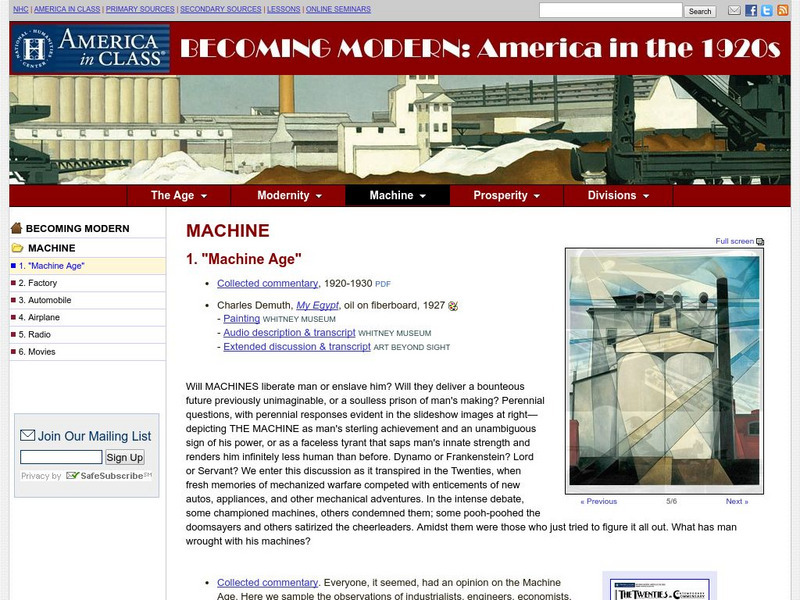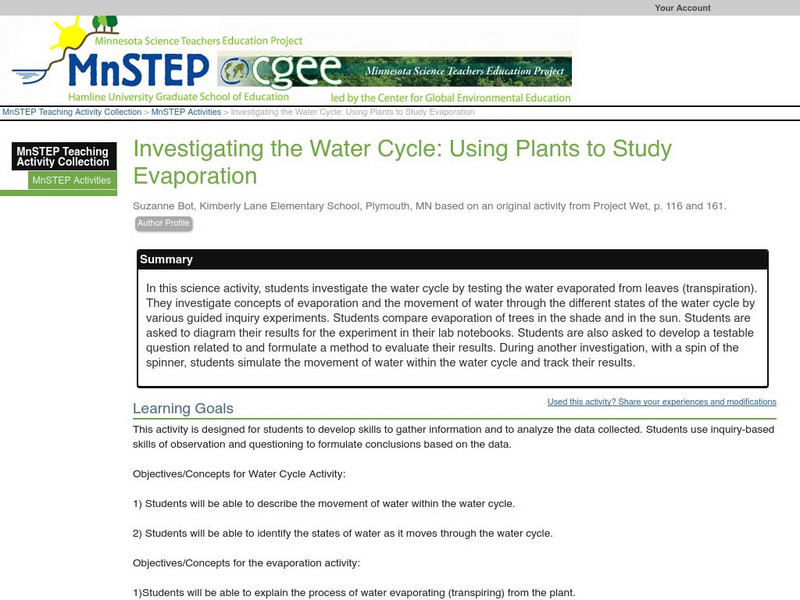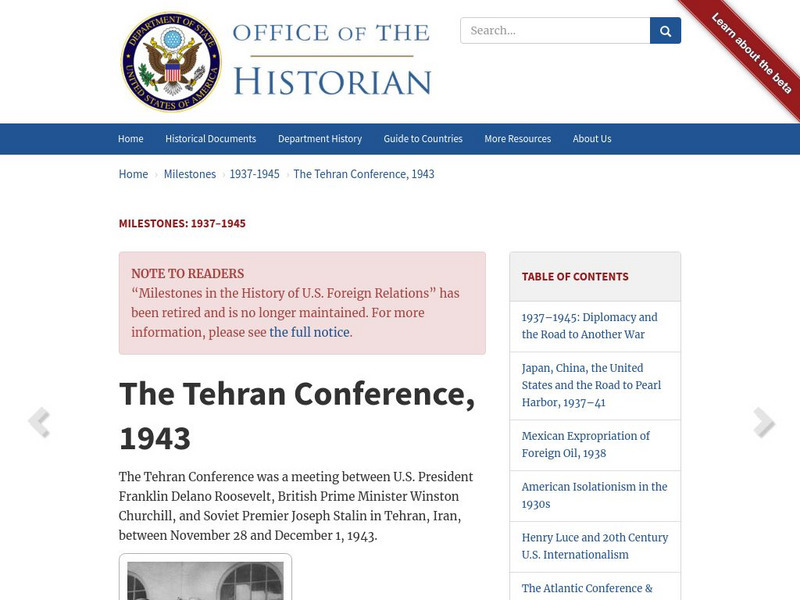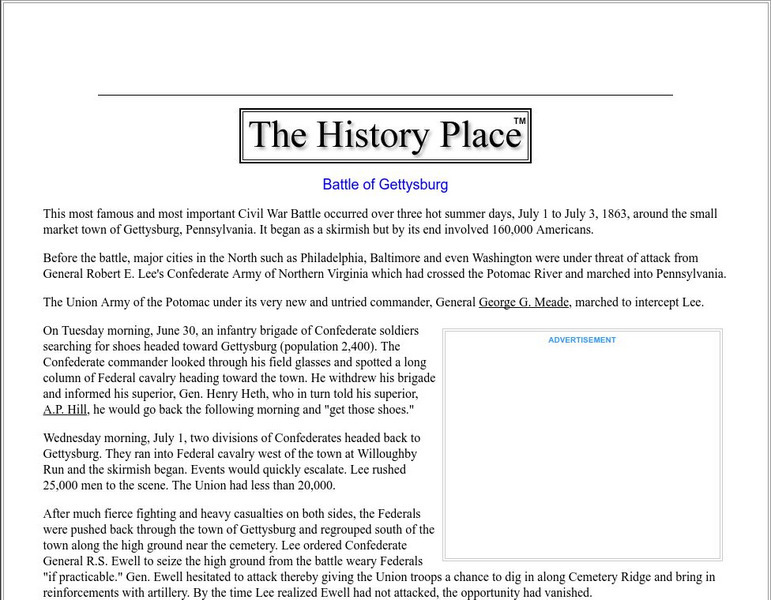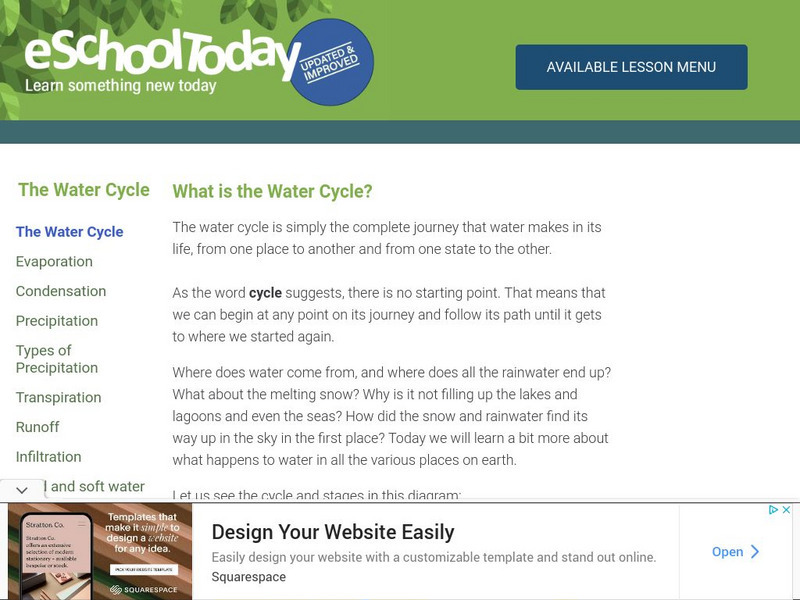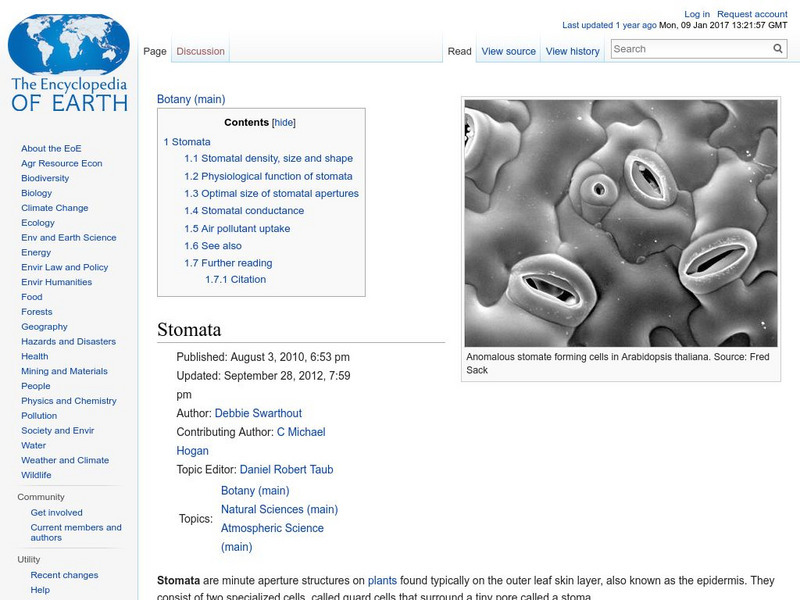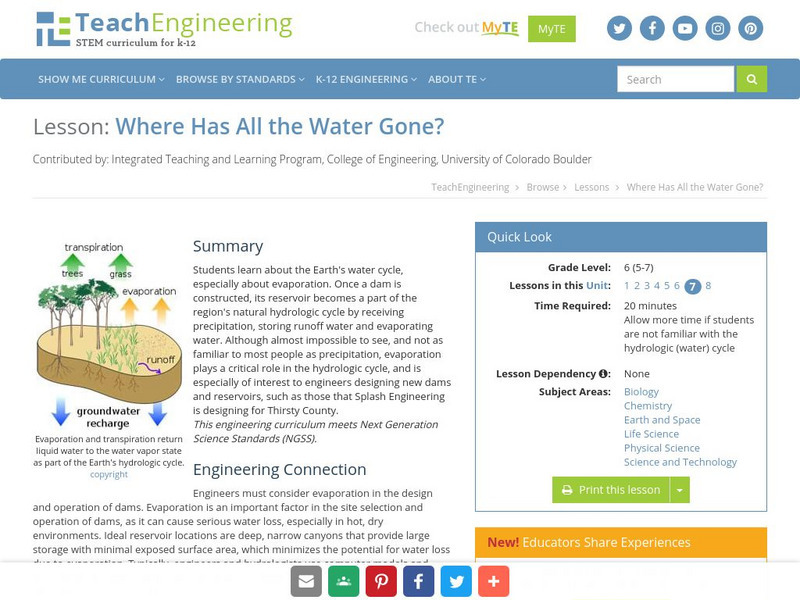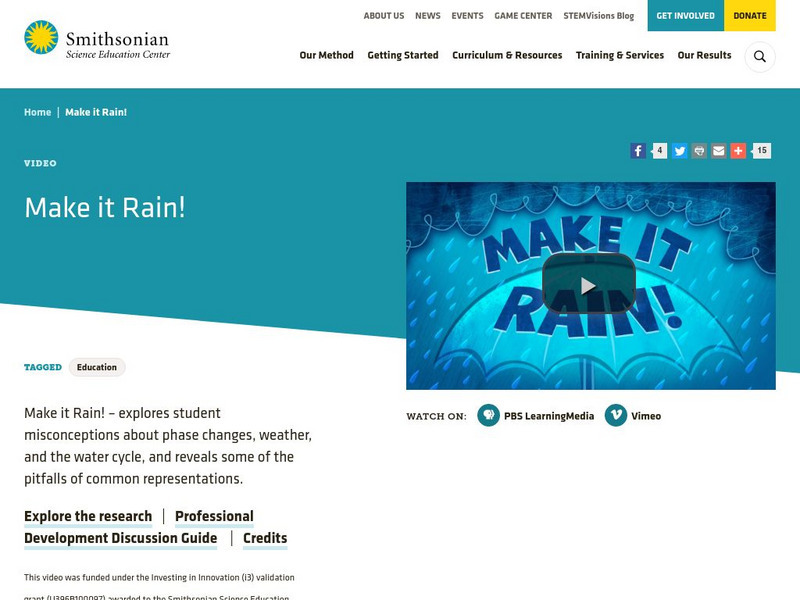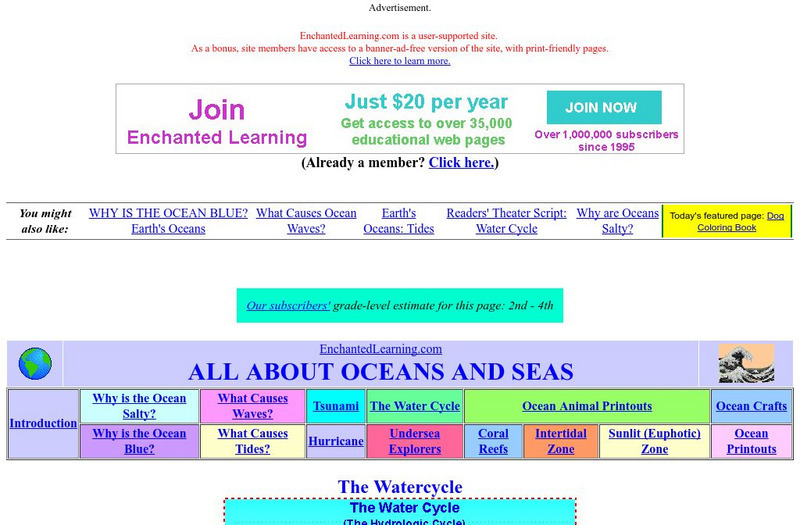BBC
Bbc News: America's Day of Terror
This resource on the 9/11 attacks by the BBC includes information on the four hijacked planes, the World Trade Center, a diagram that lists all the companies that were located in the two towers of the World Trade Center, pictures from...
National Humanities Center
National Humanities Center: America in Class: America in the 1920s: "Machine Age"
The National Humanities Center presents collections of primary resources compatible with the Common Core State Standards - historical documents, literary texts, and works of art - thematically organized with notes and discussion...
Science Education Resource Center at Carleton College
Serc: Investigating the Water Cycle: Using Plants to Study Evaporation
In this science activity, students investigate the water cycle by testing the water evaporated from leaves (transpiration). They investigate concepts of evaporation and the movement of water through the different states of the water...
Yad Vashem, The World Holocaust Remembrance Center
Yad Vashem: The Individual and Togetherness in the "Witness Education"
"Witnesses and Education" is a project in which survivors of the Holocaust tell their story in the actual location where the events transpired. This lesson is broken down into themes: Jewish community before the Holocaust, Jewish...
National High Magnetic Field Laboratory
Magnet Academy: Svante Arrhenius
Svante Arrhenius was born in Vik, Sweden, and became the first native of that country to win the Nobel Prize. The award for chemistry was bestowed to him in honor of his theory of electrolytic dissociation. Arrhenius also developed the...
US Department of State
Office of the Historian: Tehran Conference, 1943
A thorough discussion of what transpired at the Tehran Conference in December, 1943, among the Allied leaders. Find out about future war strategy as well as postwar plans for Europe and the Pacific.
TeachEngineering
Teach Engineering: Witnessing Evaporation
The engineers at Splash Engineering (the students) have been commissioned by Thirsty County to conduct a study of evaporation and transpiration in their region. During one week, students observe and measure (by weight) the ongoing...
TeachEngineering
Teach Engineering: Biodomes
Students explore the biosphere's environments and ecosystems, learning along the way about the plants, animals, resources and natural cycles of our planet. Over the course of lessons 2-6, students use their growing understanding of...
TeachEngineering
Teach Engineering: Photosynthesis Life's Primary Energy Source
This lesson covers the process of photosynthesis and the related plant cell functions of transpiration and cellular respiration. Young scholars will learn how engineers can use the natural process of photosynthesis as an exemplary model...
Wisconsin Historical Society
Wisconsin Historical Society: Freedom Summer
This is an extensive collection of documents, images, digital collections, and teacher resources related to the Mississippi Freedom Summer Project. Civil rights activists traveled throughout Mississippi registering rural Mississippians...
University of Virginia
Miller Center at Uva: u.s. Presidents: Fdr: Fireside Chat 27: On the Tehran and Cairo Conferences
After Franklin Roosevelt's meeting with other Allied leaders in Tehran and Cairo in December, 1943, he gave a fireside chat on December 24 to inform the American public what transpired and how the Allies planned on ending the war.
Utah Education Network
Uen: Water Cycle Relay Race Usu Water Cycle
Students will review the water cycle through a relay race vocabulary game.
Utah Education Network
Uen: Water Cycle Drama: Usu Water Cycle
Learn the different parts of the water cycle.
BBC
Bbc News: On This Day: December 1,1943: Allies United After Tehran Conference
An account of what transpired at the Tehran Conference when the Allied leaders met to plot further World War II strategy and postwar issues. Read portions of the declaration made at the end of the conference, and, perhaps equally...
The History Place
The History Place: Battle of Gettysburg
A detailed description of the events that transpired during the Battle of Gettysburg.
Other
Historical Society of Pennsylvania: The Fort Mims Massacre of 1813
Many events that occurred during the War of 1812, like so many other periods in American history, are now largely forgotten and unknown to the general public. Atrocities or barbarities perpetrated against the Indians by settlers are well...
eSchool Today
E School Today: Your Revision Notes on the Water Cycle
Learn about the different stages of the Earth's water cycle, and about processes involving water, including runoff, infiltration, and the differences between hard and soft water.
Encyclopedia of Earth
Encyclopedia of Earth: Botany: Stomata
Article discussing the structure, function, and efficiency of stomata, the apertures on plants' leaves that regulate gas and water vapor exchange during photosynthesis. (Published: August 3, 2010)
TeachEngineering
Teach Engineering: Natural and Urban "Stormwater" Water Cycle Models
Students apply their understanding of the natural water cycle and the urban stormwater water cycle, as well as the processes involved in both cycles to hypothesize how the flow of water is affected by altering precipitation.
TeachEngineering
Teach Engineering: Life Science
This unit covers the processes of photosynthesis, extinction, biomimicry and bioremediation. In the first lesson on photosynthesis, students learn how engineers use the natural process of photosynthesis as an exemplary model of a complex...
TeachEngineering
Teach Engineering: Where Has All the Water Gone?
Students learn about the Earth's water cycle, especially about evaporation. Once a dam is constructed, its reservoir becomes a part of the region's natural hydrologic cycle by receiving precipitation, storing runoff water and evaporating...
Smithsonian Institution
Smithsonian Science Education Center: Make It Rain
How do you show students that the water cycle is more than just the traditional model of the ocean, clouds, and mountains and actually a part of their daily lives? This video will show multiple models of different part of the water cycle...
Annenberg Foundation
Annenberg Learner: The Habitable Planet: Water Resources
Learn about water as a precious resource in danger of being depleted. Understand the roles that overuse and agricultural use play in the sustainability efforts of this essential resource. Includes video. [28:25]
Enchanted Learning
Enchanted Learning: The Water Cycle
Great colorful chart of the water cycle, with background information. Provides additional links for more information on the water cycle.
Other popular searches
- Plant Transpiration
- Transpiration of Plants
- Cell Transpiration
- Transpiration Questions
- Transpiration in Plants
- Water Transpiration
- Transpiration Water Cycle
- Photosynthesis Transpiration
- Rate of Transpiration
- Celery Transpiration
- Plant Transpiration Pdf
- Plant Transpiration Pd

